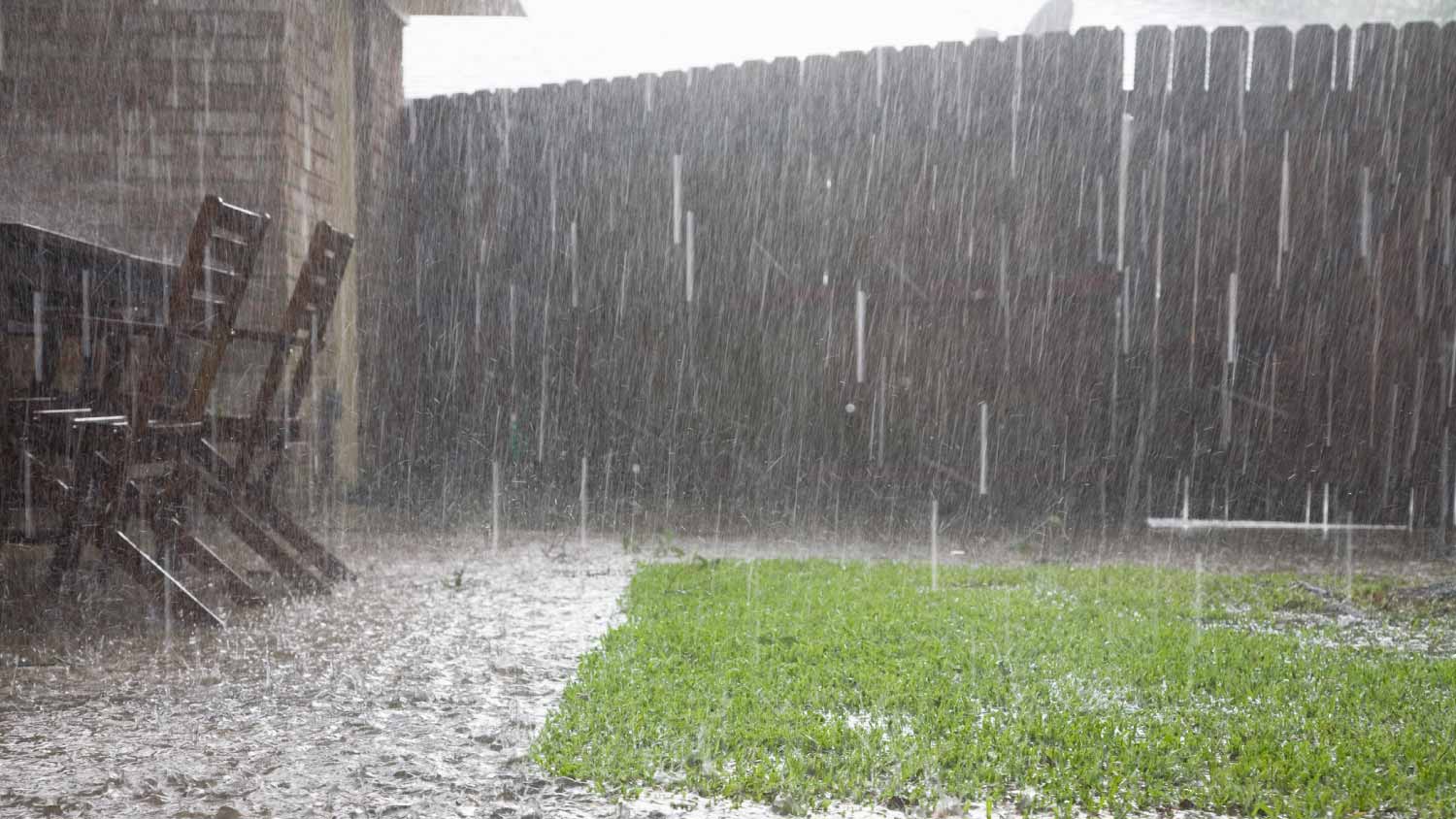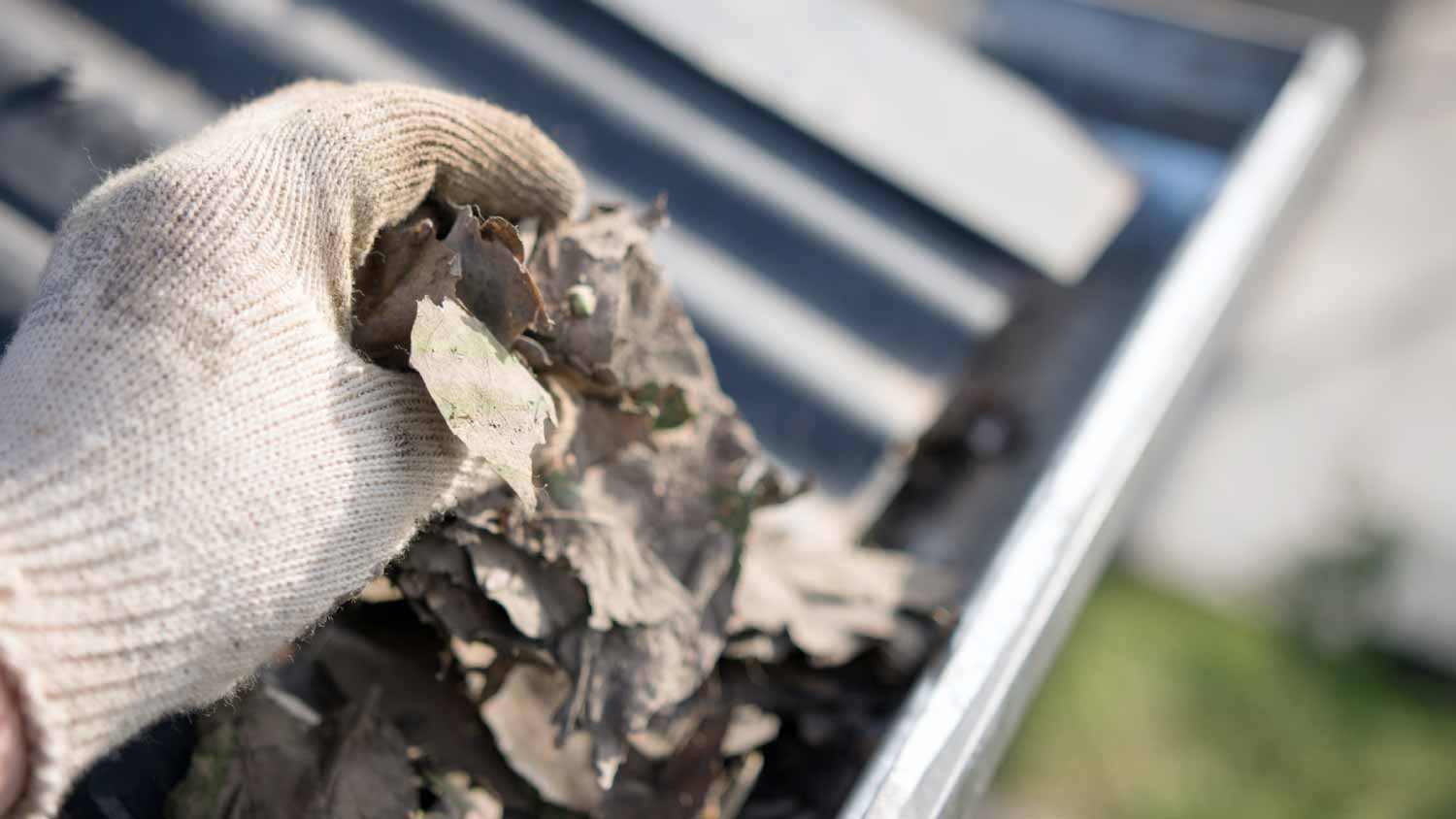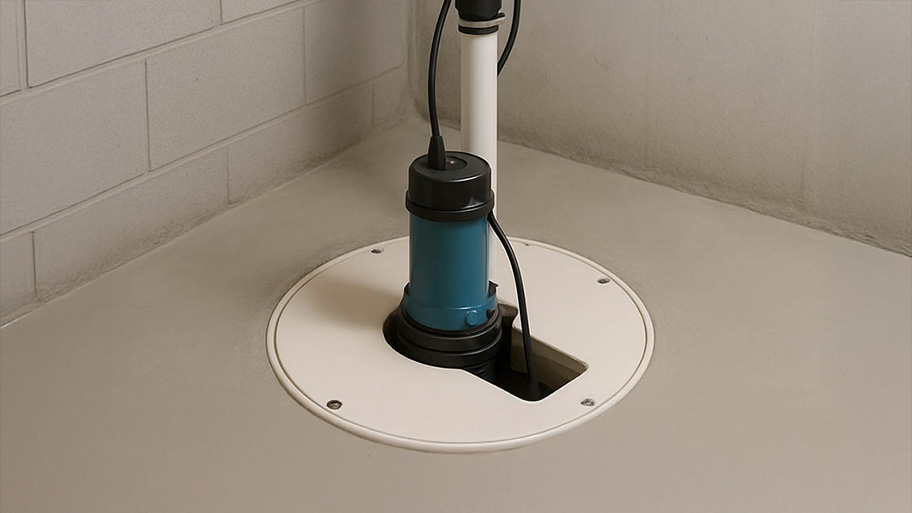
A variety of factors can affect your total crawl space encapsulation cost. Here’s a breakdown of the cost of this project, whether you hire a pro or DIY.
Pump up your solutions to a common problem


It’s normal for a sump pump to work harder for longer during and after an intense rainstorm.
If the sump pump is constantly running for three or more days, check for a jammed float switch sensor, a bad check valve, or blockages in the discharge line or gutters.
Consider upgrading your sump pump to one with a larger capacity to decrease the amount your sump pump runs after heavy rain.
Sump pump sounds got you down? Sump pumps help prevent flooding by directing excess water away from a home’s basement or crawl space, and they usually do it without interrupting your day. But sometimes, you may find your sump pump running constantly after heavy rain. This isn’t necessarily a cause for alarm: It’s simply doing its job. Even so, check for possible underlying causes why your sump pump won’t stop running to reduce the risk of flooding and damage to your house’s foundation.

After a big storm, it’s not out of the ordinary to hear a sump pump constantly running for two or three days. You may be experiencing higher groundwater levels than normal, and the sump pump is there to help drain this water away from your house. This becomes a problem if your sump pump is not draining properly or runs constantly when water levels aren’t high.
Soil that is already saturated or less permeable will take longer to drain, too. Look for big puddles or especially muddy areas around your property after a heavy rainfall. These are signs that the rain is not draining effectively through the soil, resulting in oversaturated groundwater levels that could overwhelm your sump pump motor. If this becomes a chronic issue, you may need to upgrade to a larger, more powerful sump pump setup.
Problems with the float switch can sometimes explain why your sump pump won’t stop running. When the water in the sump pit reaches a certain level, it triggers the float sensor, turning on the sump pump. This is similar to the floating ball you may find inside a toilet tank. If the float switch is jammed at a higher level, the system will think the water is at that higher level. So, the sump pump won’t shut off, but don’t stress about how to replace a sump pump just yet!
A jammed float sensor is one of the most common sump pump problems, and it’s usually easy to fix. Inspect the float switch and clean out any debris in the way. It’s possible that as the water level in your sump pit lowered, the float sensor got caught on something and didn’t disengage as it is supposed to. Left unfixed, your sump pump will keep running continuously and never turn off.
If it’s been more than five to seven years, though, a replacement unit may be in order. Call sump pump repair companies near you to take a closer look at your system.
Another common reason why your sump pump won’t shut off has to do with the check valve. This valve is supposed to prevent water from coming back into your sump pit through the discharge line. A malfunctioning check valve can allow this water to return, creating an endless cycle where your sump pump keeps trying to clear the same water over and over again.
Following an extended period of higher-than-normal flow, like after an especially heavy rainstorm, the check valve may get damaged or obstructed. The rain can wash sediment and other debris into your sump pump system, possibly affecting the check valve. Much like a jammed float sensor, if you don’t fix a malfunctioning check valve, your sump pump may run continuously and quickly wear out.
Also much like with the float sensor, regular cleaning and maintenance can go a long way in ensuring the check valve is always operating as it should. A local pro can inspect if your check valve is working as it should. As a safeguard, sump pump backup options can help keep your basement dry if such issues arise. For example, a water-powered sump pump backup can run as long as it has a working water supply. If the rainstorm comes with a power outage, it can be a real lifesaver.
A sump pump that’s not draining properly will keep taking in too much water. This could be one of the reasons why your sump pump is running constantly after heavy rain. Take a look at both the sump basin (sump pit) and the discharge pipe, looking for debris and other clogs. The water needs to get out, and a clogged discharge line could prevent that from happening.
If it keeps raining, your sump basin will continue to fill up with even more water and possibly overflow. This can quickly flood your basement or crawl space, possibly leading to significant foundation damage.
Preventative maintenance is key here. Take the time to check your sump pit and discharge line for possible clogs every few months. Debris can accumulate after a heavy rainstorm, too. A sump pump lid can reduce the likelihood of potential clogs.

It’s normal to think that the reason why your sump pump won’t shut off has to do with the sump pump itself. As the reasons above illustrate, this could very much be the case. But, there are other possible causes for why a sump pump won’t stop running. Looking at the outside of your home, inspect your gutters and downspouts for possible issues.
They should be draining rainwater into the sewer system. If your gutters are clogged or your downspouts are faulty, the excess rainwater could accumulate around the perimeter of your home. This adds even more water to your sump pump’s workload. The resulting constant sump pump water flow can be too much for it to handle. Heavy winds during a storm can flow tree leaves and other debris into your gutters, for example, so the water overflows to the ground rather than draining away into the sewer.
After a heavy storm, take the time to visually inspect your gutters and downspouts. Seasonal cleaning can help to prevent blockages, too. Improve your exterior drainage to prevent having to absorb the cost of replacing a sump pump that’s been overworked.
If you find your sump pump won’t stop running, it may be because it’s not big or powerful enough for the job. It may not be able to keep up with heavier rainfalls in your area, leading to possible flooding. Also, remember that most sump pumps last between seven and 10 years.
Investing in a sump pump with a higher capacity may handle heavy rainstorms better. Adding a second sump pump is another option. You can learn how to install a sump pump yourself, or you can hire a professional.
Typical sump pump installation costs range from $600 to $2,000 for labor, depending on type and location. It’s cheaper to install a sump pump outdoors or in a basement than in a tight crawl space, for instance. The actual sump pump unit itself costs $60 to $400, on average. A unit with a battery backup can cost more.
Window Depot did an amazing job installing the windows in my basement! The process from start to finish was by far more than what I expected. I would highly recommend Window Depot if you want professionalism from the the consultation to the installation. Dont settle for mediocre when you can...
I first got exposed to Hanson at the 2013 Homearama in Liberty Twp, where they did basement A/V on like 3 houses. I was hooked on the integration and connectivity they were promoting and knew I wanted to do business with them when the time came to finish my basement. One day while in...
Reduced original estimate that included a portion that was hiddien by paneling after I removed the paneling so it could be inspected. Thoroughly inspected basement and placed beams to minimize impact on shelving and utilitly sink. Arrived on time, completed work as promised At no extra...
No hassle, no pressure, no mess left in my basement. ...and now I have a better understanding of our furnace.
Owner, Jeff Sayre, came and gave us a quote which was fair. They first opened the sewer line in basement. Then we had them back to work on downspouts. They repaired one and replaced the other underground downspout, which they did in one day, replaced sod and did a fantastic job! They were...
ON A SUNDAY AFTERNOON, OUR WATER HEATER LITERALLY FELL APART AND SPILLED WATER AND GAS ALL OVER THE BASEMENT. AFTER GETTING EVERYTHING SHUT OFF AND MY HEART RATE BACK TO NORMAL, I CALLED WATERWORKS AND WAS SURPRISED TO TALK TO A LIVE HUMAN BEING AT SUCH AN ODD TIME. WITHIN TWO HOURS OF THE...
From average costs to expert advice, get all the answers you need to get your job done.

A variety of factors can affect your total crawl space encapsulation cost. Here’s a breakdown of the cost of this project, whether you hire a pro or DIY.

Sump pump battery backup costs depend on the type and the design of the system purchased. Follow this guide to learn how to budget for your backup battery.

Discover how much sump pump installation costs, including average prices, key cost factors, and tips to save on your basement waterproofing project.

If your home's crawlspace has water issues, here are the crawlspace encapsulation questions you should be asking a contractor about the project.

Don't let the rain get you down. Learn about the most popular sump pump backup options to keep your basement from flooding, even when the power goes out.

Installing a sump pump helps to protect your home from flooding and water damage. Follow this guide on how to install your own sump pump in six steps.